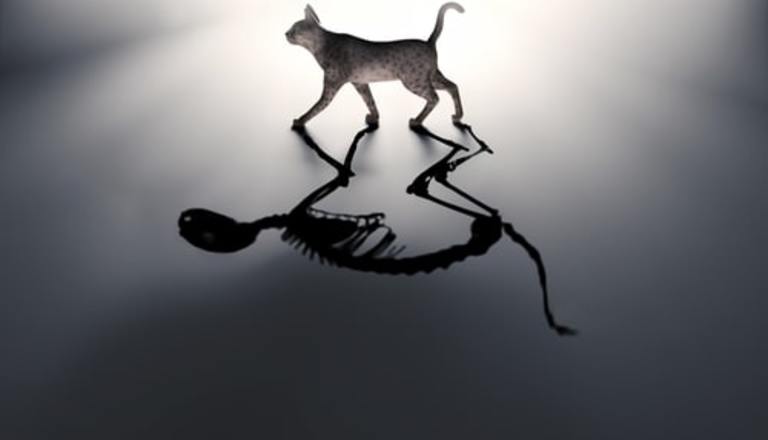
The Schrodinger's cat theory of lottery play
Lottery draws and the subsequent numbers that provide the end result and hopefully match the numbers on your ticket, are simply acts and results of random events. Until the numbers have been generated, your ticket, and the actual lottery draw, are nothing but a Schrodinger’s cat. If you are not familiar with the concept of Schrodinger's Cat, or have never watched the TV show The Big Bang Theory, then an explanation, a complicated layman’s explanation unfortunately, is in order.
The Theory
The theory of Schrodinger’s Cat is a way of demonstrating the theory of quantum mechanics, which explains how the universe and the physical properties of nature work at the scale of subatomic particles. In the theory, quantum particles exist in a superposition of states at the same time, and collapse down to a single state upon interaction with other particles. As such any two quantum states can be added together, or superposed, and the result will be another valid quantum state; and conversely, that every quantum state can be represented as a sum of two or more other distinct states.
With the Schrodinger’s Cat theory, a cat put into a box with a closed lid will simultaneously be both alive and dead at the same moment due to another random subatomic event that may or may not occur. Einstein gave another example of this theory by saying that an unstable keg of gunpowder will contain a superposition of both exploded and unexploded states.
The “many world’s” theoretical interpretation of Schrödinger's cat basically meaning the theory of the multiverse (an infinite number of parallel universes) says that the status of the cat is a universal branching point. The cat is both alive and dead regardless of whether the box is opened, however the "alive" and "dead" cats are in different branches of the universe (different parallel universes) that are equally real but cannot interact with each other hence the cat is in both alive and dead states and persist after the box is opened. The states are decoherent from each other, meaning that when the box is opened, the observer and the cat split into two states in which an observer is looking at a box with a dead cat, and an observer is looking at a box with a live cat. Since the dead and alive states are decoherent from each other, there is no effective communication or interaction between them.
When opening the box, the observer becomes entangled with the cat, so that two "observer states" are formed, corresponding to the cat's being alive and dead. Each observer state is entangled or linked with the cat so that the observation of the cat's state, and the cat's state correspond with each other. Quantum decoherence ensures that the different outcomes have no interaction with each other.
Comparing the Theory
So to compare this theory with the lottery, in essence, your ticket is both a winner and a non-winner at the same exact moment. Until a drawing result happens, and you check your ticket, and actually observe whether you matched all the numbers or not, your ticket is in a state of superposition, or, is both a winner and non-winner, and after the observation, only then does the ticket assume a particular state. In essence, after the draw, there will still be two universes, one is our current one in which you have won the lottery jackpot and the other, in which you did not win it. And there will be more parallel universes in which you won smaller amounts, each one a branch of the coinciding winning/non-winning ticket state.
This is a very unique take on the potential win in buying a checking a lottery ticket. This example shows that it is useless to become anxious over the upcoming draw and the draw results. Until you or another person actually checks the ticket, it is always going to be a potential winner.
